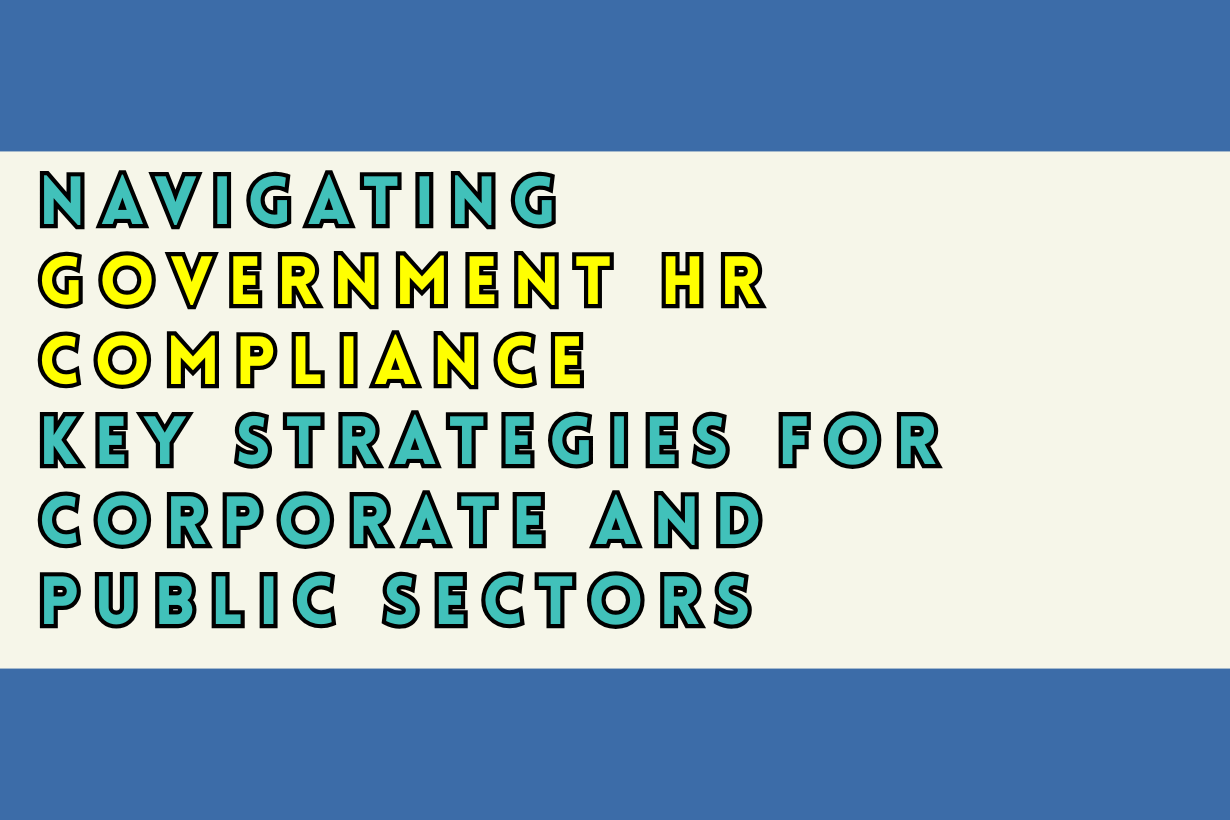
Navigating Government HR Compliance: Key Strategies for Corporate and Public Sectors
- by Indu Sharma
Whether you’re running a growing startup or handling operations in a government department, managing government HR compliance strategy can often feel like walking a tightrope. There are constant updates to employment laws, complex state-specific rules, and rising expectations around workplace ethics. HR professionals today are not just administrators they’re protectors of company values and culture. The good news? Staying compliant doesn’t have to be stressful. In fact, when done right, it can be a foundation for long-term growth and employee trust.
In this guide, we break down what human resource management compliance really means in simple terms, and offer practical strategies that both public and private sectors can use right away.
Why Government HR Compliance Matters
Let’s be real no one wants to deal with legal trouble. But compliance isn’t just about avoiding fines. It’s about building a workplace that’s fair, safe, and respectful. In India, there are key laws that govern employment practices:
- The Factories Act, 1948
- The Shops and Establishments Act
- Payment of Wages Act
- Employees’ Provident Fund Act
- Industrial Disputes Act
Breaking these rules doesn’t just risk lawsuits or shutdowns ,it damages your reputation. And today, brand image matters more than ever, especially for young talent and investors. So, having a solid government HR compliance strategy is not optional it’s essential.
Building a Compliance Strategy That Actually Works
Here’s how to create a smart, manageable compliance plan:
-
Stay Updated With Labor Laws
Laws evolve. What was okay last year might not fly this year. Subscribe to HR newsletters, attend webinars, or connect with a legal advisor. Knowing what’s coming helps you stay ahead.
-
Keep All Your Documentation in Check
Records are your safety net. Keep everything organized:
- Offer letters, contracts
- Salary and attendance sheets
- Emails and internal memos
- Disciplinary notices (if any)
If something ever goes wrong, having the paperwork ready could save you hours and possibly your job.
-
Get the Right HR Software
If you’re still tracking payroll and leave manually, you’re making it harder than it needs to be. Good HR tech takes care of the boring stuff like auto-calculating salaries or reminding you about upcoming compliance filings.
-
Train Your Managers Too
Many compliance issues happen because someone didn’t know better. Make sure team leads understand the basics of employment law. Run regular refresher sessions or provide short internal videos.
- Do Internal Check-Ups
Audits aren’t just for big corporations. Whether you have 10 employees or 1,000, running quarterly reviews can help catch and fix issues early.
- Help Employees Understand Their Rights
When people know the rules, they’re less likely to break them—or feel like they’ve been wronged. Share policies clearly. Use FAQs, short videos, or even WhatsApp messages to explain things like leave, benefits, or workplace conduct.
- Know What’s Different Between Government and Private Sector HR
- Private Companies: Focus on contracts, harassment prevention, flexible work policies, and digital privacy.
- Public Sector: Focus on service rules, job reservations, fixed retirement age, and formal grievance redressal systems.
Your strategy should reflect these unique needs.
- Create Safe Spaces for Reporting
If employees feel unsafe speaking up, small issues can spiral. Set up anonymous reporting tools. Make it clear that whistleblowers won’t face retaliation.
- Stay in Touch With Legal Experts
You don’t need to be a lawyer—but you do need one in your corner. Have regular chats with legal consultants to keep everything aligned with the law.
How Technology Makes Compliance Easier
Let’s talk tech. HR tools are like your digital assistant. They:
- Track attendance and log hours
- Auto-calculate taxes and generate payslips
- Keep records stored safely
- Send reminders about deadlines
With one good system, you can reduce human errors and save a ton of time. For growing businesses and government bodies alike, this is a game-changer.
Even more than convenience, using technology shows employees that your organization is modern and transparent. And in a world where job seekers value accountability, it could be the very thing that helps you attract and retain top talent.
Mistakes You’ll Want to Avoid
Even experienced teams mess up sometimes. Here are some common red flags:
- No formal contracts or offer letters
- Late PF or ESIC deposits
- Ignoring POSH (Prevention of Sexual Harassment) requirements
- Hiring freelancers without contracts
- Using outdated policy manuals
Catching these early is easier (and cheaper) than fixing them after damage is done.
Final Thoughts
Let’s face it compliance can feel boring. But it’s really about respect: for your employees, your customers, and the law. A great government HR compliance strategy makes your workplace safer, smoother, and more respected.
In a time where everything moves fast technology, job roles, expectations getting HR right means you’re ready for whatever comes next. And when employees know you’re doing right by them, they show up with more energy, loyalty, and trust.
So, take that time to get your HR basics in order. Talk to your team. Clean up your records. Invest in tools that make your life easier. Whether you’re in the private or public sector, compliance isn’t just a task it’s your ticket to building a workplace you can be proud of.
By building trust through transparency and planning, you’re not just checking legal boxes you’re creating a culture where people thrive. And that, ultimately, is the goal of every great workplace.
Whether you’re running a growing startup or handling operations in a government department, managing government HR compliance strategy can often…
